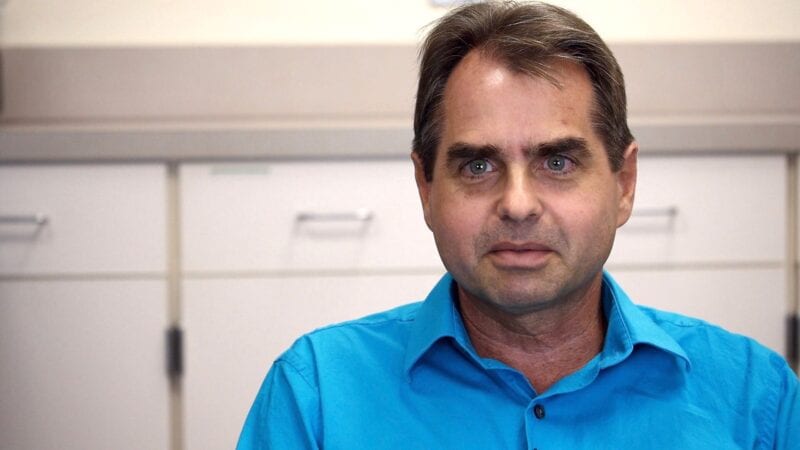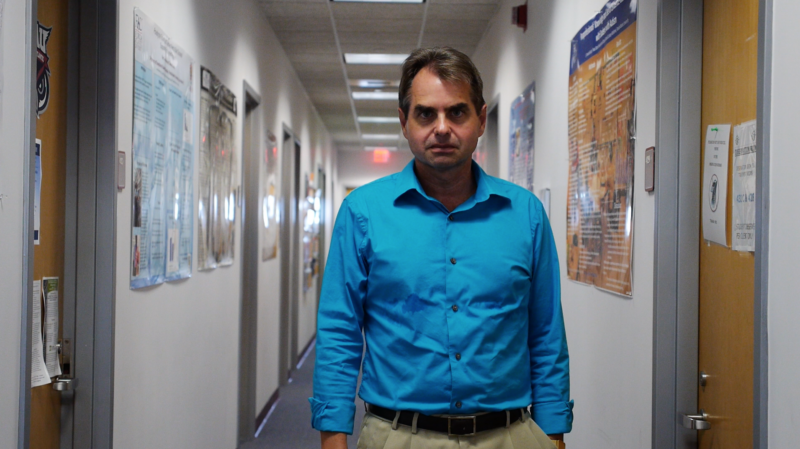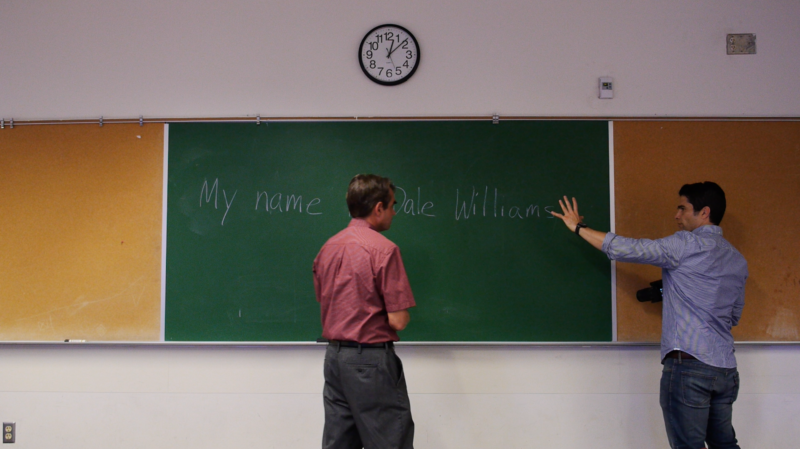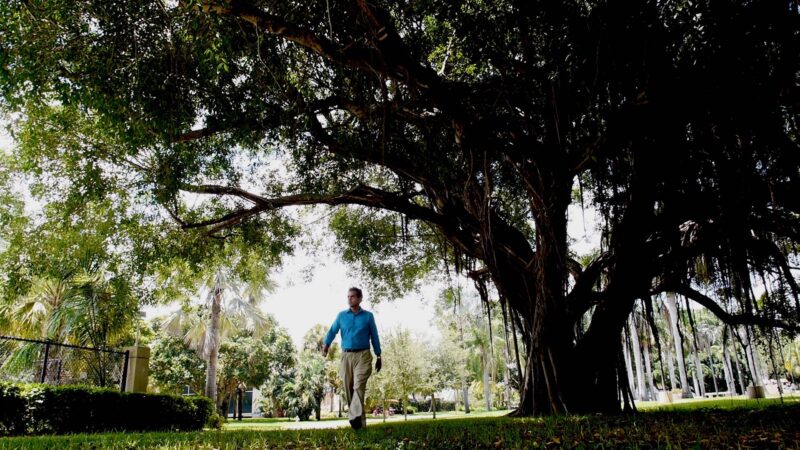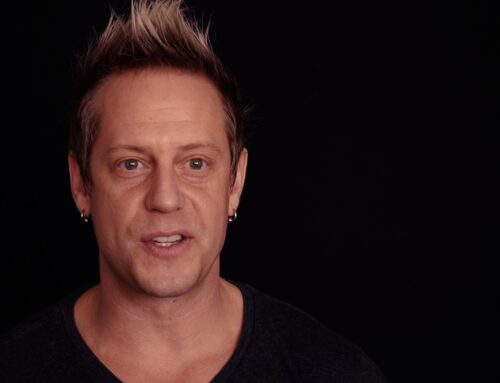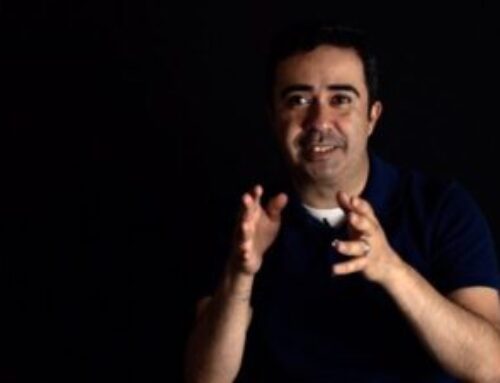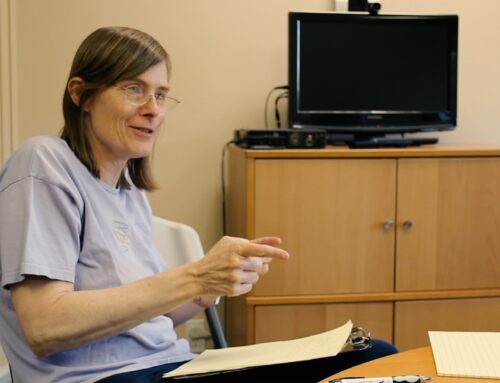DALE WILLIAMS
Let’s face it, Dale Williams is hilarious! Anyone who has had the pleasure of spending time with him knows this. I first heard the “Julie Story” at the ASHA Convention in 2011. Dale was part of the “Paths Toward Recovery from Stuttering” seminar where he and other professionals talked about their individual journeys with stuttering. Panel discussions like this have been a tradition at ASHA since the days of Charles Van Riper.
In the panel, Dale was both funny and poignant in the way he spoke about stuttering. At the time, I had not yet begun filming WHEN I STUTTER but I had hoped to have professionals like him talking about stuttering in that same humanistic and revealing way. It’s a much longer story, but I eventually approached him about being in the film and I’m forever grateful that he agreed.
The “Julie Story” always manages to get a laugh because so many of us can relate to the sheer terror of having to call and ask someone out on a date. When you throw the fear of stuttering into the mix, you can see how that intensifies an already nerve-racking situation. It also doesn’t hurt that we get to see Dale in a Tux that would have made the Bee Gees hit even higher notes!
Dale has really championed WHEN I STUTTER in so many ways. In particular, he hosted a full house screening at Florida Atlantic University last year. He was also part of a panel discussion that followed a presentation of the film at the 2017 ASHA Convention in Los Angeles. When I go to Florida, I always look forward to grabbing lunch with him at Lindburgers- laughter is guaranteed!
“Your goal is not fluency; it’s waking up and thinking about stuff other than stuttering; it’s saying what you want to say, even if your listeners have to wait an extra second or two; it’s following your dreams but with one extra barrier in the way.”
What has been the response from others about you in the film?
It has been overwhelmingly favorable. Three responses have been prevalent: 1) being photographed in the beige tux displayed great courage, 2) my eyes apparently look quite large on a movie screen, and 3) shut up and listen. Hey, at least one message got through. The verbal gymnastics required to ask Julie out have been mentioned more than once as well.
What was your favorite or most memorable part of the process of making the film?
What was interesting to me was how candid the process was. With other media experiences, I was alerted to what I would be asked (although often those alerts were much different than what actually came my way on camera). For John’s interviews I was not tipped off. It gave them an impromptu and genuine feel.
What has surprised you about the film since it was first presented?
Several things. That a documentary about people stuttering while doing ordinary things would garner so much attention is surprising and a tribute to John’s film-making abilities. Regarding my scenes, I thought somebody might ask whatever happened to Julie or whether I ever met Josh (the guy I told to shut up), but nobody did. Also, no one apparently noticed (or they were too polite to mention) my gaffe when trying to say fight, flight, or fright.
What’s changed in your life since we saw you in the film?
I have published a new book (Shining a Light on Stuttering), and have a stuttering workbook under contract. A novel—with a stuttering character—will also be published soon, but I’m writing that under a pen name so anyone interested will have to search hard for it. (Or, I suppose, you can just ask me.) Professionally, I’m now the Chair of the Department of Communication Sciences & Disorders at Florida Atlantic University. On a personal level, all my kids got old, even though my wife did not. The last 2 are moving out of the house in mere months. Finally, a sad note: My dad, who took and saved the tux picture (and who thought to send it when I asked for childhood photos) passed away. In addition to finding goofy pictures, he was a big fan of the movie, attending viewings in both Michigan and Florida and donating to the GoFundMe page. It took a bit of time, but he also learned to be a patient listener.
What’s your relationship with stuttering now?
We say hello when we see each other, but anything beyond that quickly gets awkward. Not true, but I wish it was because that would make stuttering an ex. In actual life, my stuttering comes and goes in long cycles (years) and I’m in a rougher sequence now than I was when the film was made. The good news is that I don’t really think about it unless I’m asked. I don’t say that to sound like some sort of disfluency badass; it’s merely an observation that I don’t dwell on my speech like back in the days of behemoth bow ties and hoping Julie wouldn’t figure out I hung up on her.
What’s some advice for people who are on their journey with stuttering?
Take risks. There is no one answer for everyone, so find yours. Those sentences might seem contradictory, but they usually are not. By that I mean your answer likely exists outside your comfort zone. For me, an irrational form of competitiveness turned out to be the thing that allowed me to progress. I became obsessed with not letting stuttering win. I reached a point where I would say feared words and enter difficult situations not because I was particularly courageous or unflappable, but because to not do so was letting stuttering defeat me again and I simply got tired of taking the L’s. So try some different things. Your goal is not fluency; it’s waking up and thinking about stuff other than stuttering; it’s saying what you want to say, even if your listeners have to wait an extra second or two; it’s following your dreams but with one extra barrier in the way. That’s how you win, at least the way that I keep score.
Purchase WHEN I STUTTER to watch
Dale and 18 other compelling individuals
talk about their journey with stuttering.
